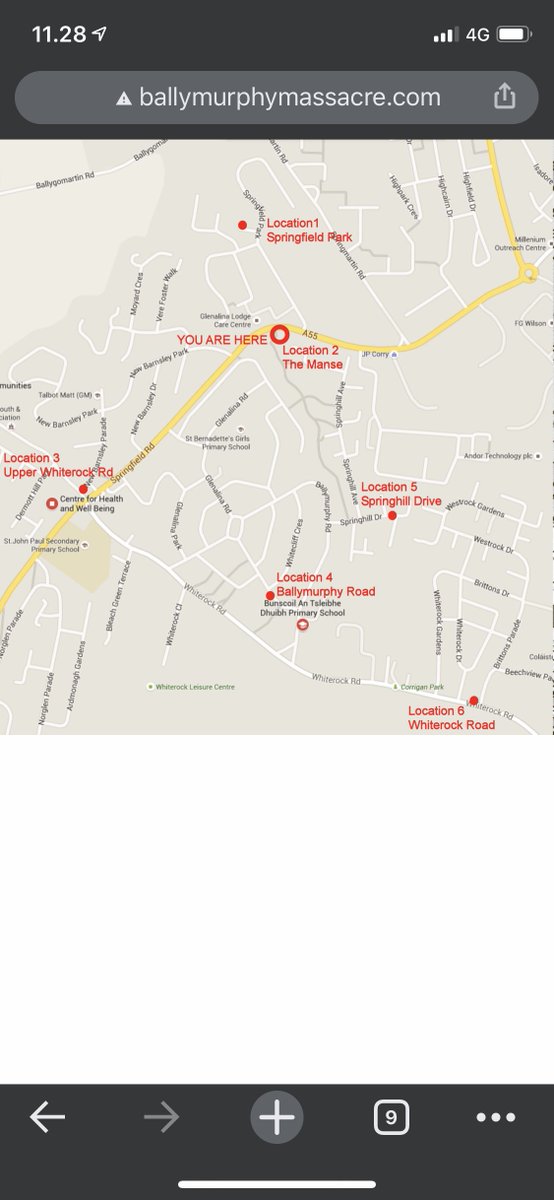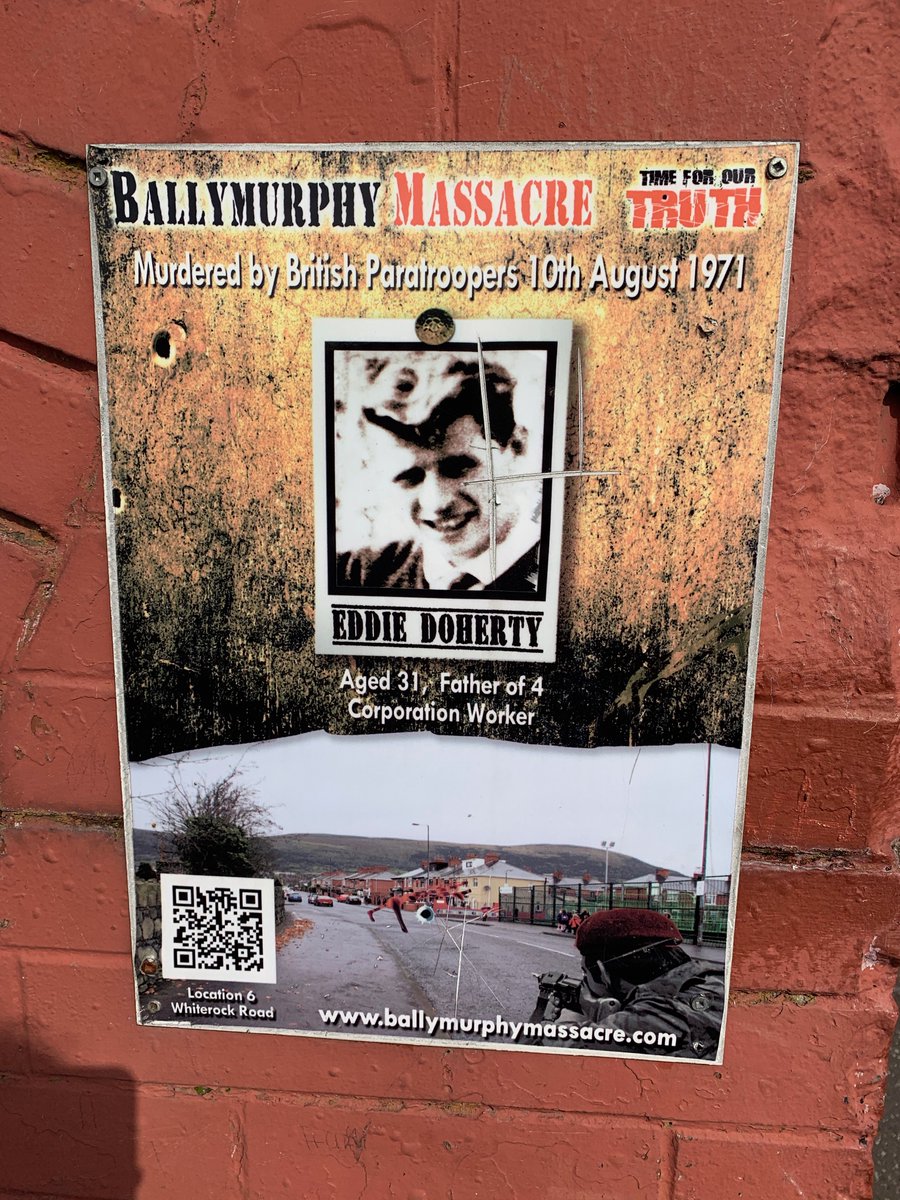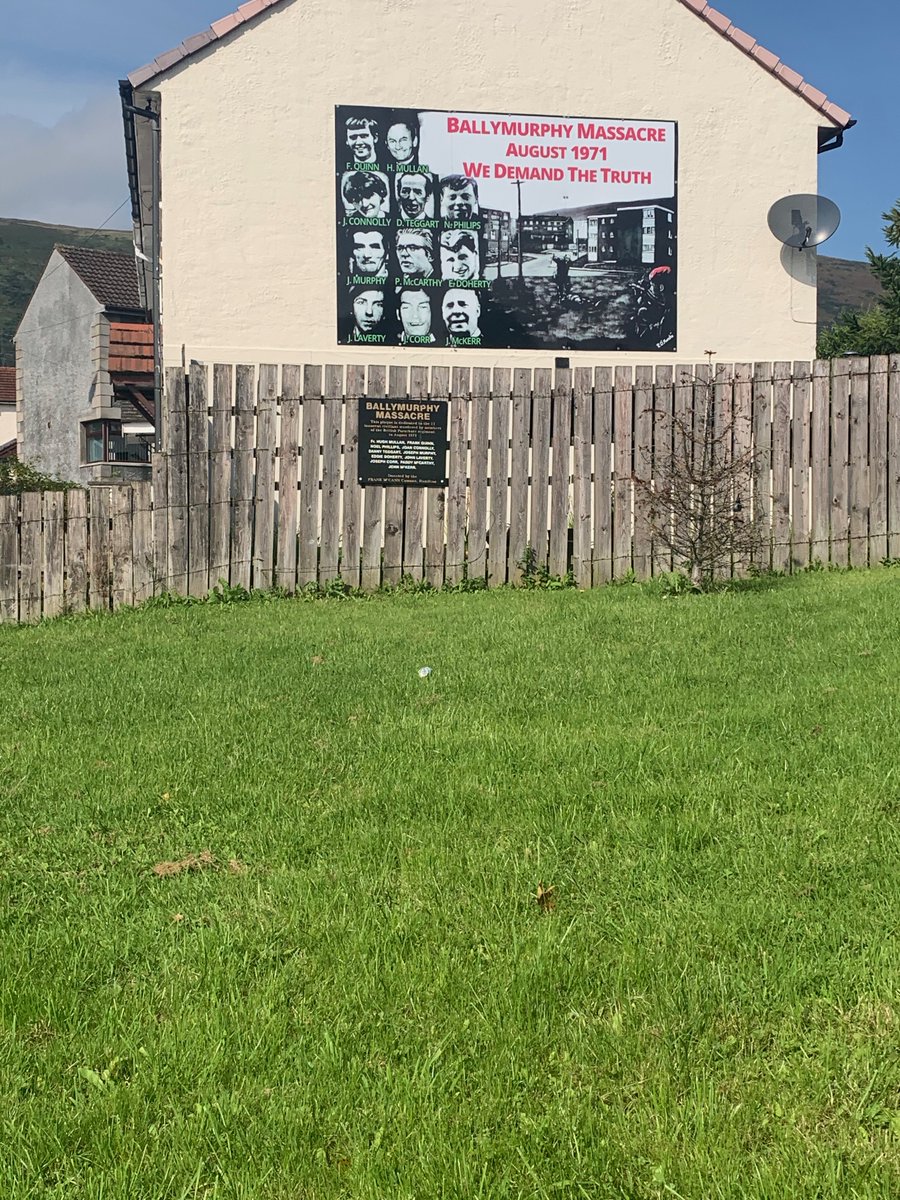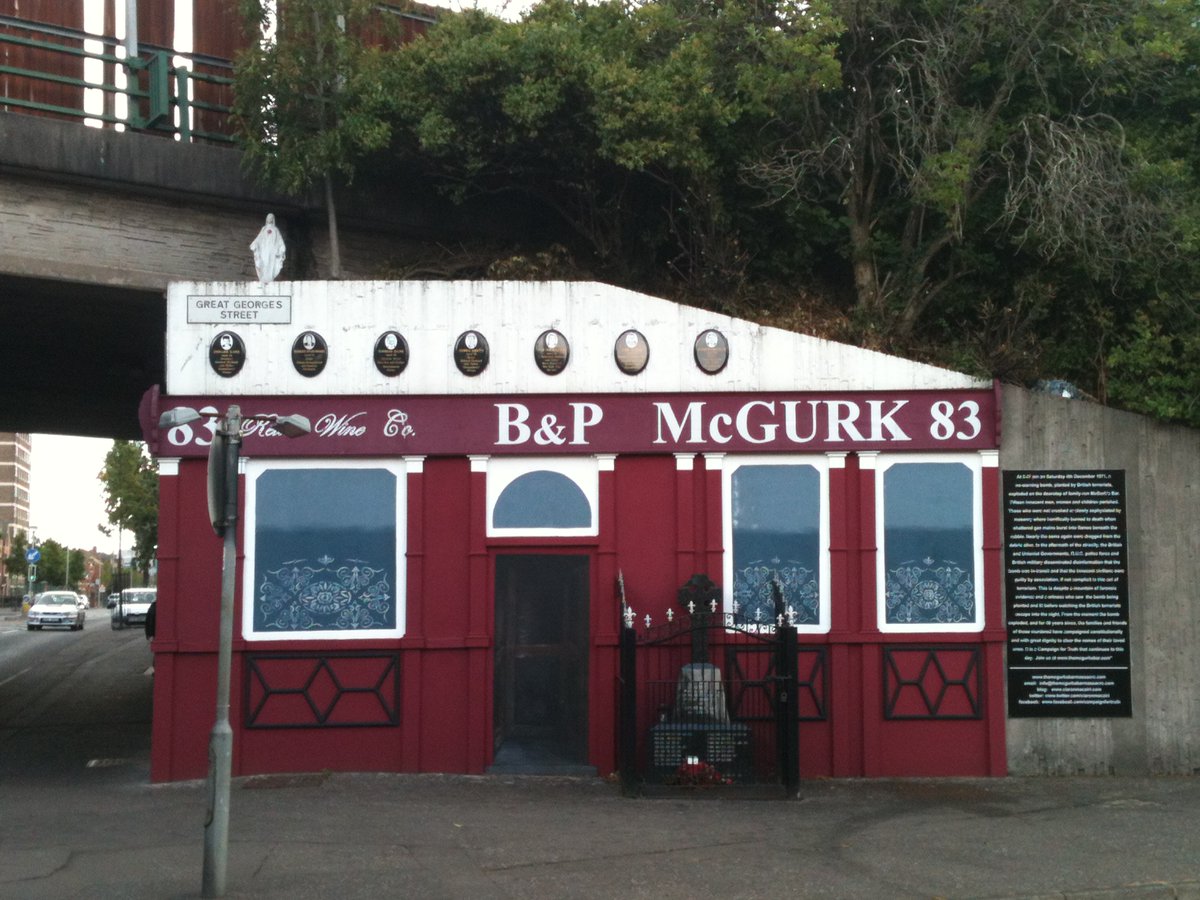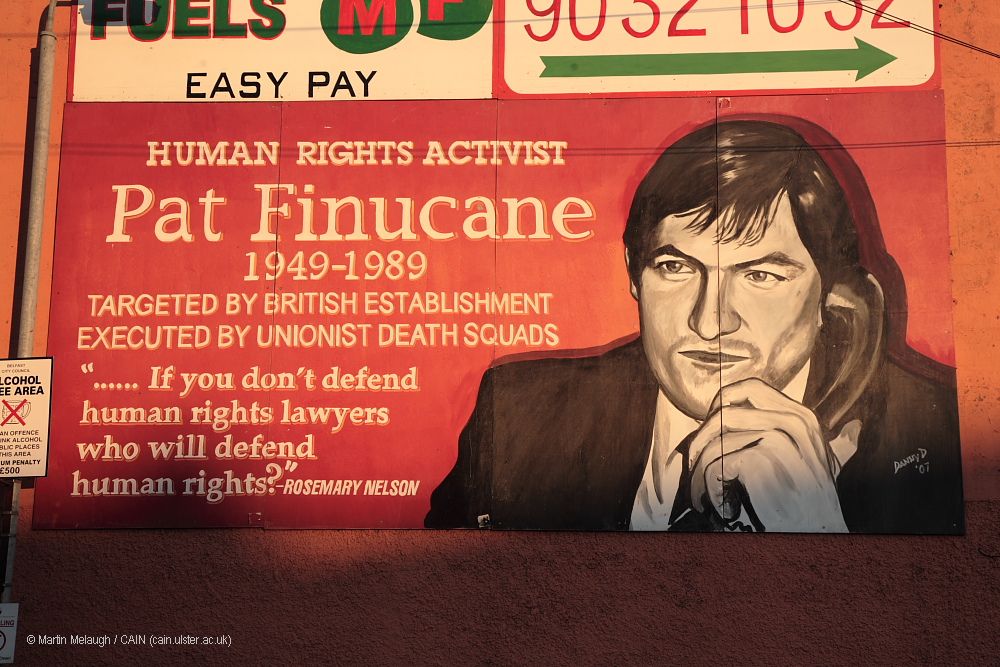Ive just spent two days bringing together a presentation on how injustices can get ingrained into place in Northern Ireland.
It focused on the memorialization of the Ballymurphy Massacre and the McGurks Bar bomb and how they are kept alive by the lack of a sense of closure.
It focused on the memorialization of the Ballymurphy Massacre and the McGurks Bar bomb and how they are kept alive by the lack of a sense of closure.
What ties the two incidents together was the timing - both early days of the Troubles, in 1971 - and the victims being tarred with innuendo and insinuation that they were complicit in their deaths. One the victims of a bomb, the other soldiers' guns.
Looking back at the newspaper reports it is clear that misinformation was circulated to the press from the security forces at an early stage, some knowingly lying about the circumstances of deaths.
Both retain the whiff of forms and degrees of state malpractice.
Both retain the whiff of forms and degrees of state malpractice.
Both sets of families had to endure poor inquiries, unsatisfactory inquests and have had to campaign - over decades - for inquiries that clear the good name of their relatives and state unambiguously that they were victims.
When the state and their forces are either perpetrators or willing to turn a blind eye to the killing of your relative - and in the process besmirch their memory - there is little you can do but campaign for justice and wait.
Their claims for justice can still be seen in the streetscapes where the deaths occurred - with placards marking the deaths places of 11 people throughout the Ballymurphy Estate. They have a website and an enduring mural and memorials to those killed with such brutality in 1971.
The families of the victims of the McGurks bar bombing have to work with the reconfigured space under the westlink underpass, which they have added to over decades. With the statue of Mary first, then a memorial added in 2001 and then the famous trompe l'oeil mural in 2011.
Even when the sites are reconfigured - as McGurks was - they retain the memory of what happened there. As the families fight for justice those places become more meaningful and their material memory demands that the unclosed past is addressed. They cannot be ignored.
Pat Finucane was a 39 year old solicitor who was murdered by paramilitaries in his middle class home in one of the leafier parts of North Belfast (he lived a 15 minute walk from where I grew up). The stench of state collusion in his death was widely recognised at an early stage.
I walked past his house alot when I was growing up and I always thought of his death and his family. As far as I'm aware the site has no memorials and isn't an activated site demanding redress but memorial murals remain across the city on the Fall Road.
His family have campaigned for decades for a public inquiry into his death - especially the need to fully and publicly identify the levels and degrees of state collusion - that even the British Supreme Court recognised had not been sufficiently done in its 2019 ruling.
The Finucane case - like the Ballymurphy Massacre and the McGurk Pub bombing - cannot simply be left to the past. The very circumstances of their deaths and how their reputations were tarnished by the state afterwards demands justice for their families.
The injustices associated with those deaths remain in the streets where they occurred. Those streets have defied attempts to eradicate what happened as that past is not closed and it continues to haunt the city and its faltering peace process. They will continue to do so.

 Read on Twitter
Read on Twitter